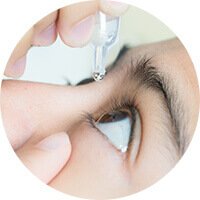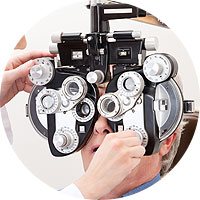
Having cataracts can be a very difficult experience to deal with— both physically and emotionally. Loss of sight takes a huge toll on a person’s confidence, as it takes away part of their identity by making them significantly less independent. Fortunately, cataract surgery is a very common procedure, and as such it has been developed into one of the safest operations in any medical field. However, surgery comes with its own set of problems. Fears, doubts, and concerns about logistics can plague anyone going into a surgery, regardless of how proven and effective it may be. If your family member is suffering from cataracts, here are some ways you can help them cope and get them on the road to recovery!
Help Them Research Cataracts And Cataract Surgery
There is a lot of information about cataracts out there. It can be pretty overwhelming when you are first starting out, so imagine how your relative with cataracts must feel! Make sure to be a resource to them and show them that you are completely there for them. Be sure to encourage them to talk to their eye doctor as soon as possible. Our clinic in Kingston, PA has an experienced staff who are ready to assist in all of your cataract needs.
Help them come up with a list of questions beforehand so that nothing important is missed or forgotten during the initial consultation. The doctor will be able to accurately answer all of these questions and hopefully eliminate any fears or anxieties they might have.
Offer Them A Ride Home From Their Surgery
After cataract surgery, patients are unable to drive home. It is very important that they find some way to get home as they will need plenty of rest immediately after the surgery, but some people may be hesitant to ask for help. Get ahead of the curve and offer to drive them home. The actual surgery is quite short, so you won’t have to wait too long after it begins to get them home. If you aren’t available or you don’t drive, consider calling them a taxi when they are finished.
Plan Low-Risk Activities With Them During Initial Recovery
It may be difficult for some people to adjust to recovery immediately, especially if they are usually a particularly active person. For the first several weeks they will be unable to do much in the way of exercise or anything that is exerting. To keep them active, try hanging out with them in the house. Try playing board games, watching some movies, or making a nice dinner with them to pass the time.
Help Out With The More Difficult Household Chores
As was said in the last tip, activities that put strain on the recovering patient are a no-go. This means heavy lifting, moving faster than a walking pace, and being in environments with airborne contaminants. For the first few weeks, offer to mow their lawn, move furniture, or anything else that is too dangerous for them to try.
Family is important, and helping them through difficulties is too. Let us help you help them! Have a relative who you think may have cataracts? Schedule a consultation for them with Eye Care Specialists!

















